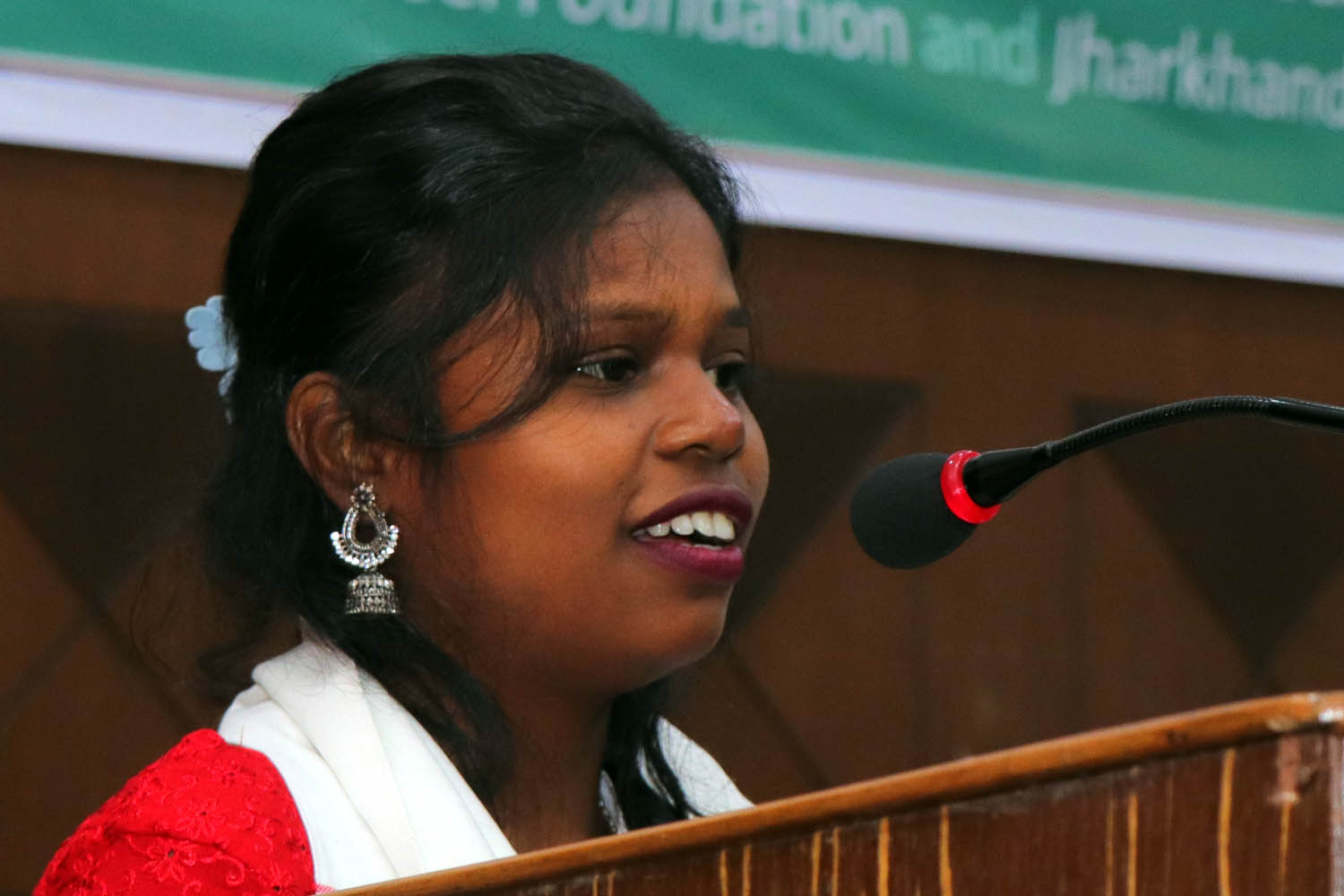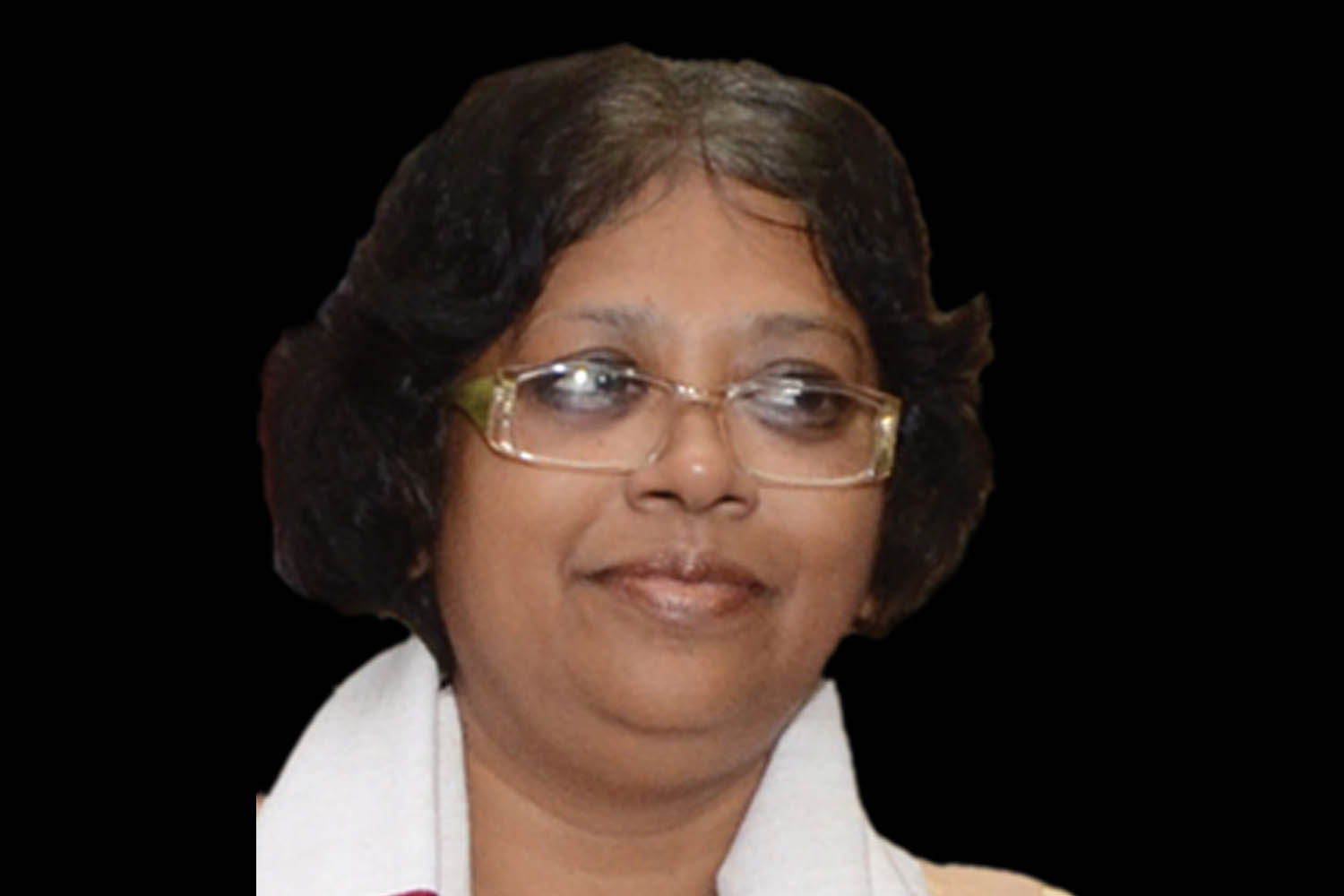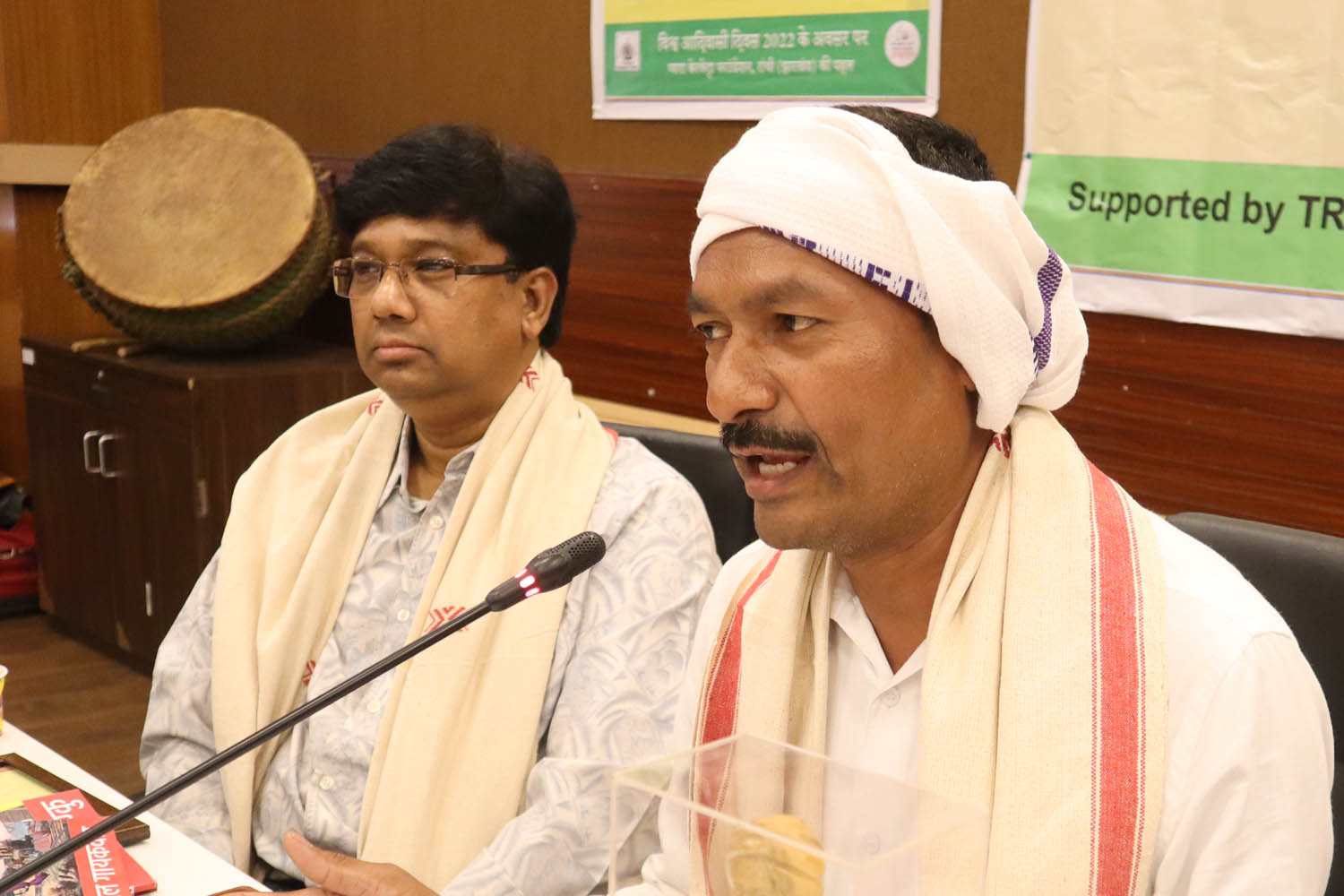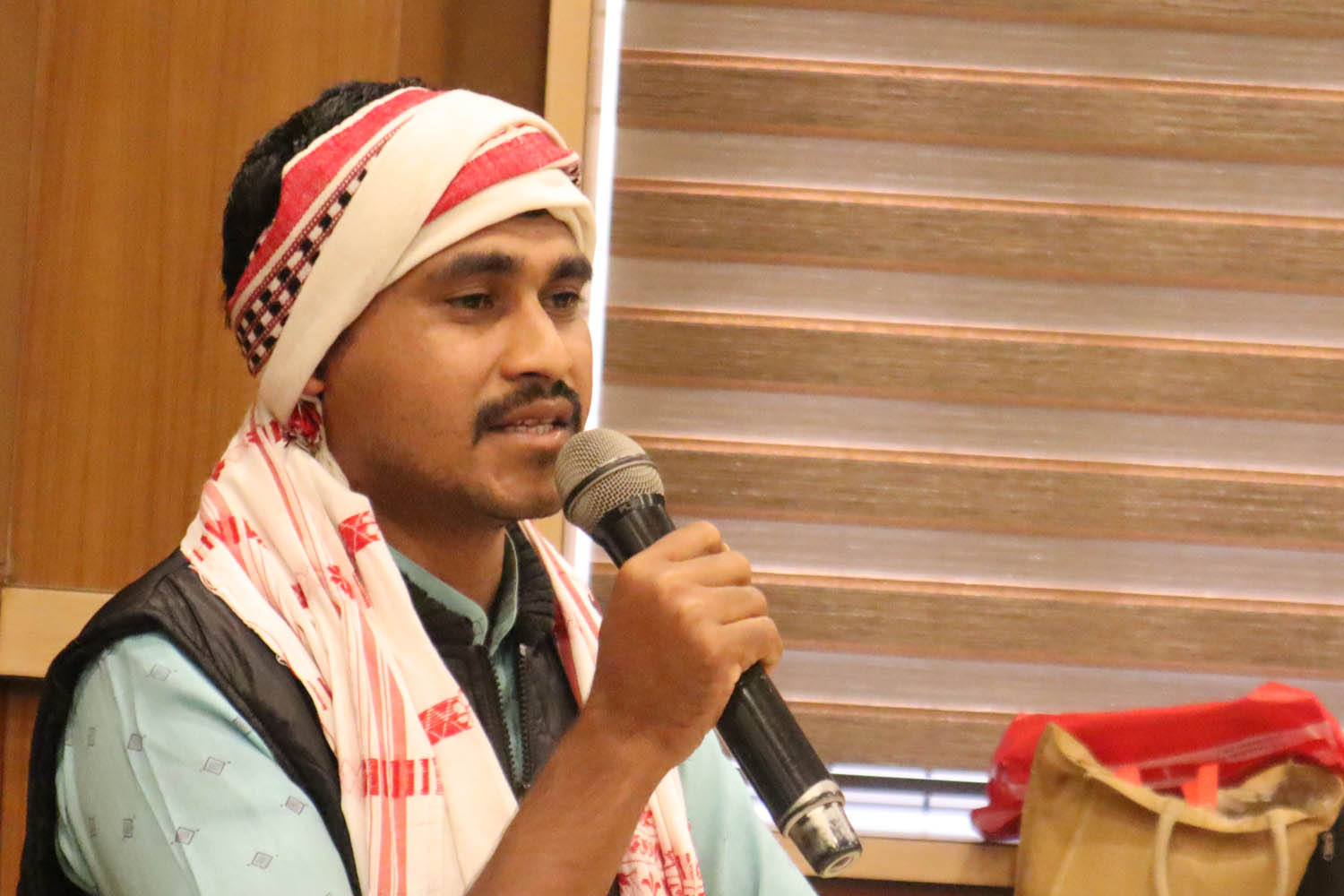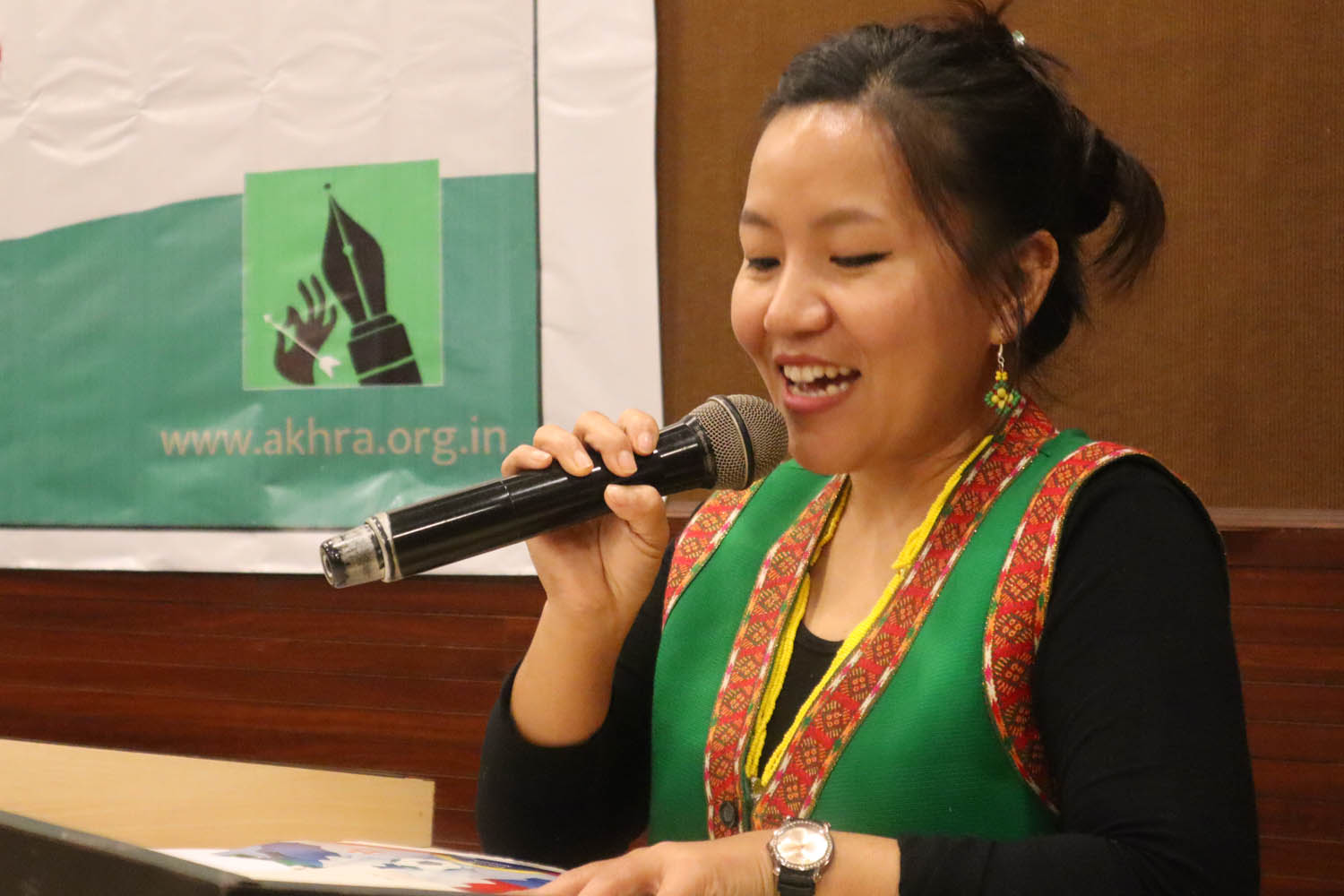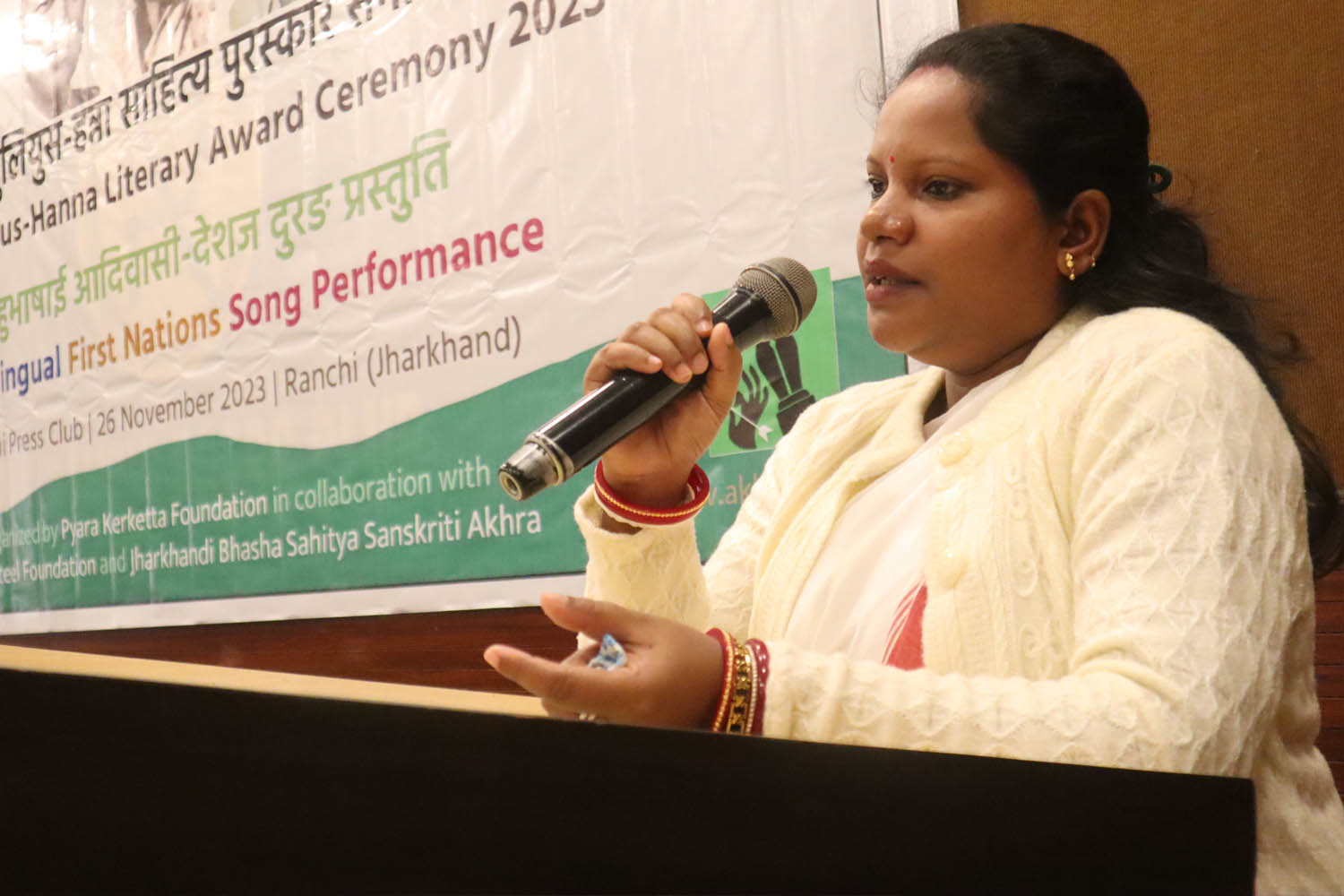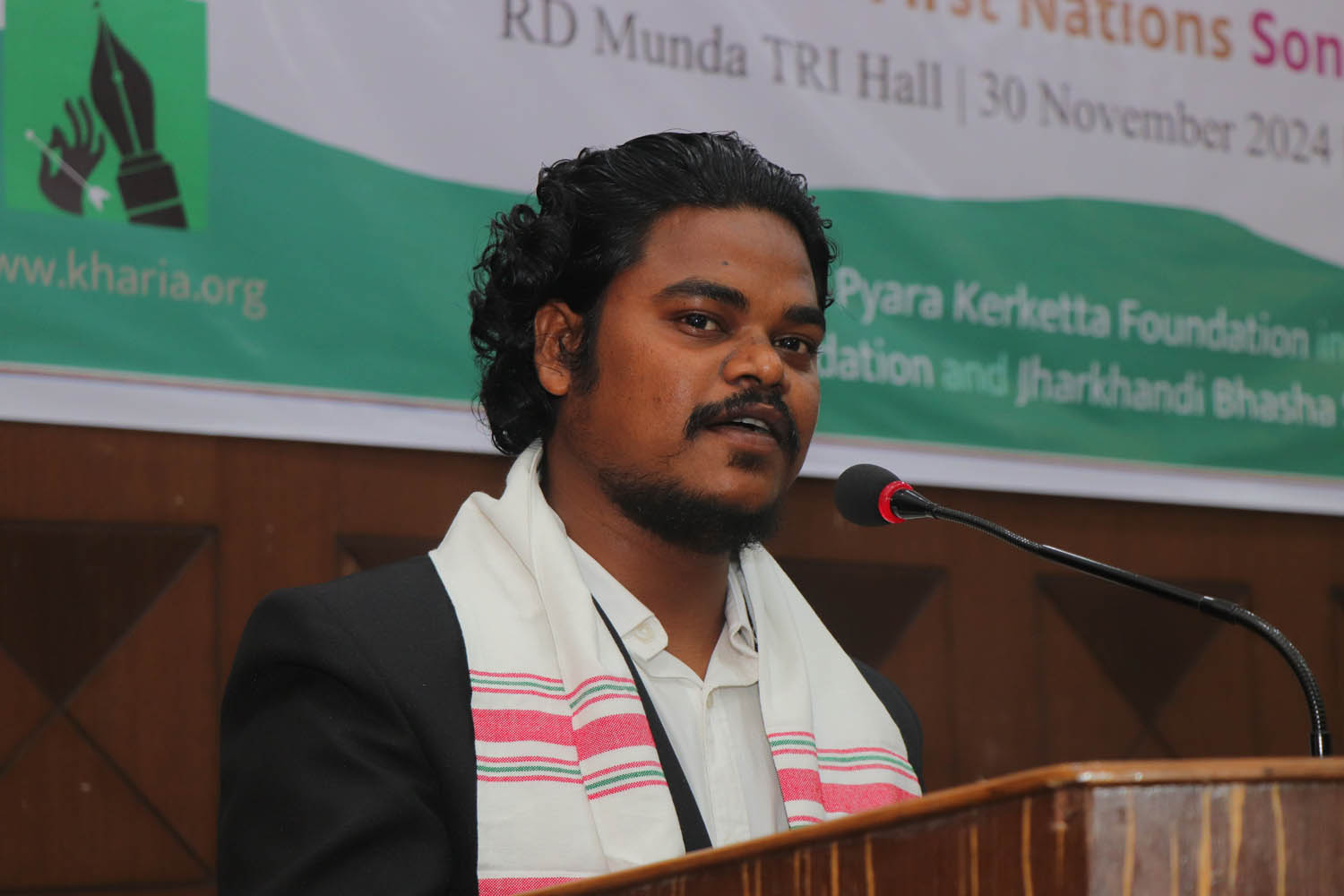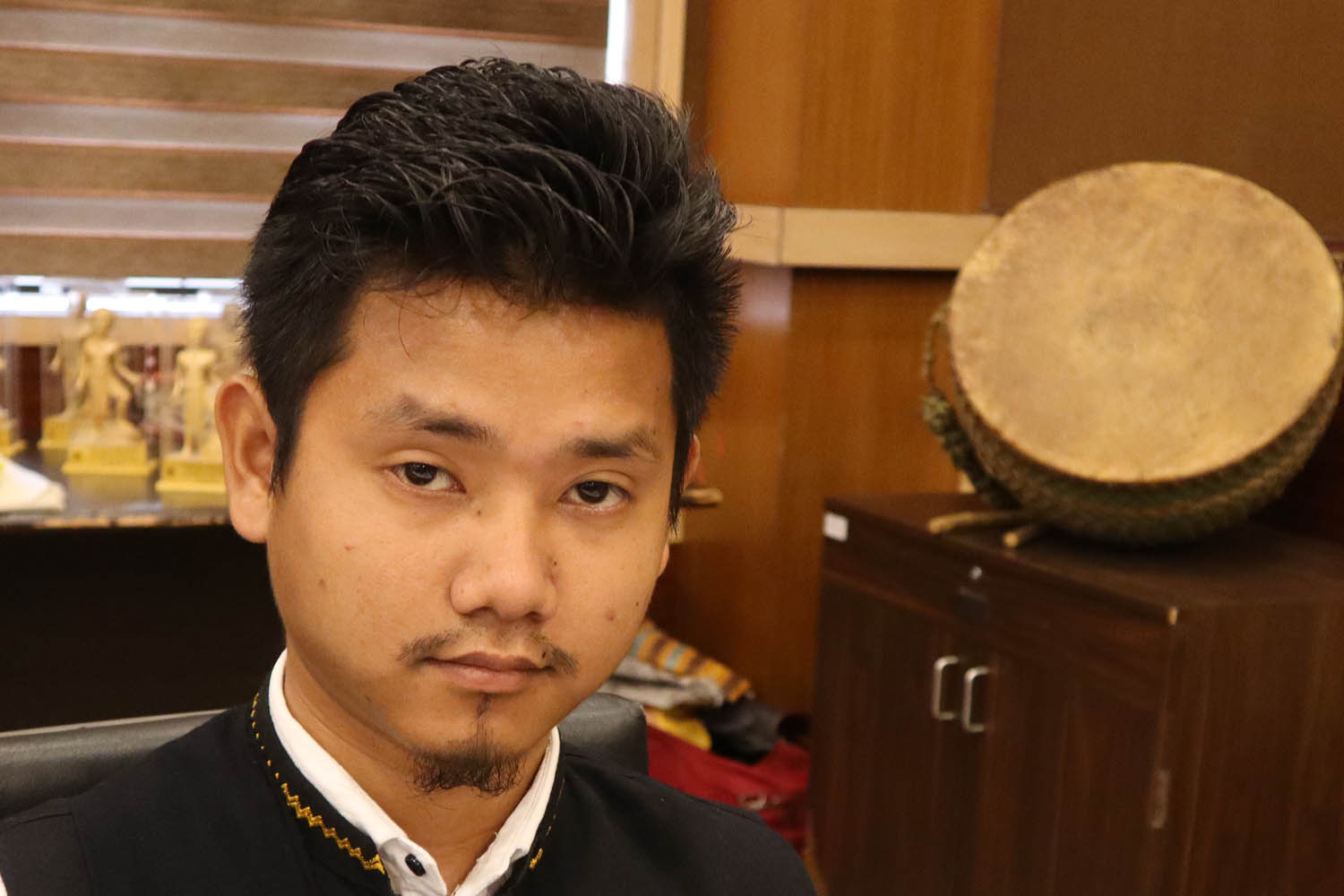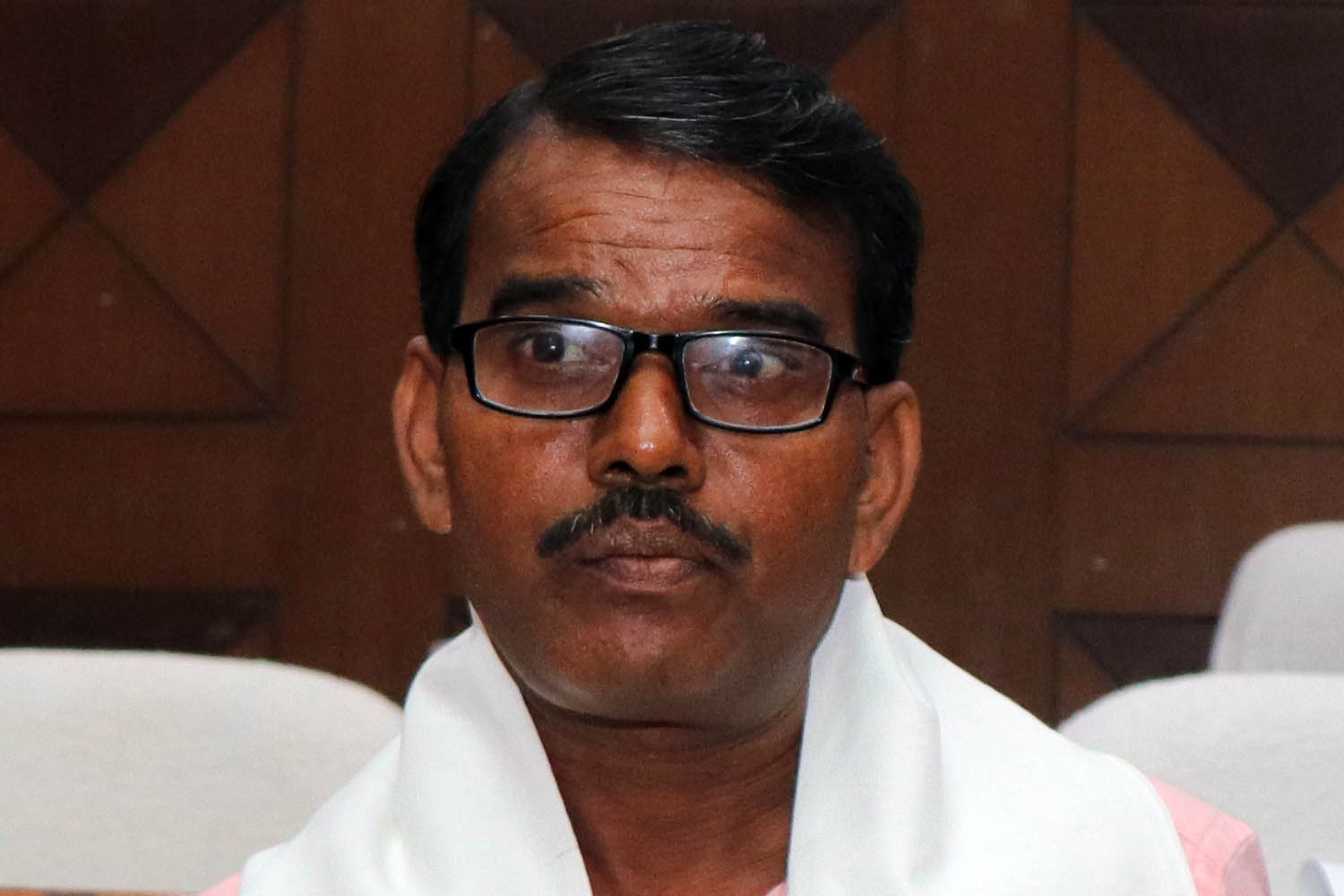JJHanna Awardee 2023
meet our past awardee
Dr. Puja Prabha Ekka
 Born on 10th March 1989 in the Paniyalguri Tea Garden of Alipurduar district in West Bengal, Dr. Pooja Prabha Ekka hails from a deeply rooted Adivasi family. Her mother, Bertha Ekka, and father, Richard Paul Ekka, nurtured a strong value system of community, education, and cultural consciousness that continues to shape her life and work. Pooja pursued her academic journey with commitment and distinction, obtaining a Ph.D. in Hindi Language and Literature, along with
Born on 10th March 1989 in the Paniyalguri Tea Garden of Alipurduar district in West Bengal, Dr. Pooja Prabha Ekka hails from a deeply rooted Adivasi family. Her mother, Bertha Ekka, and father, Richard Paul Ekka, nurtured a strong value system of community, education, and cultural consciousness that continues to shape her life and work. Pooja pursued her academic journey with commitment and distinction, obtaining a Ph.D. in Hindi Language and Literature, along with
specialized diplomas in Translation Studies and Hindi Journalism. A Junior Research Fellowship (JRF) awardee, she first served as a schoolteacher before joining Ghoshpukur College, Siliguri (West Bengal) in August 2019, where she currently works as an Assistant Professor in Hindi. Her writings have been published in various journals and magazines, reflecting her scholarly insight, linguistic finesse, and social engagement.However, it is her first major translation project, titled ‘Somra ka Disum’, that has truly established her as a literary force. This Hindi translation of Kajal Hembram Demta’s seminal Santali short story collection ‘Cha-Bagichar Sanjh Phajir’ (Evening Dawn of the Tea Gardens), originally published in 2015, has opened a crucial window into the emotional, cultural, and political landscape of India’s Adivasi tea garden communities.The Jaipal Julius Hanna Adivasi Literary Award was conferred upon Dr. Pooja Prabha Ekka for ‘Somra ka Disum’ because the work is not merely a translation—it is a cultural bridge that brings forth unheard voices, forgotten histories, and contemporary struggles of Adivasi communities, particularly those living and working in the tea gardens of Bengal.
If you would like to read this award-winning short story collection, please obtain it from here.
Dr. Tunung Tabing
 Dr. Tunung Tabing hails from the Tangam subgroup of the Adi Adivasi community in East Siang district of Arunachal Pradesh. Born in February 1991 to parents Ori Tabing and Takep Tabing, she has remained deeply rooted in her language, culture, and community.
Dr. Tunung Tabing hails from the Tangam subgroup of the Adi Adivasi community in East Siang district of Arunachal Pradesh. Born in February 1991 to parents Ori Tabing and Takep Tabing, she has remained deeply rooted in her language, culture, and community.
She earned her PhD on the topic “A Sociolinguistic Study of the Tangam Sub-tribe of the Adi Community in Arunachal Pradesh.” Presently, she serves as a faculty member at the Institute of Distance Education, Rajiv Gandhi University, Itanagar. Her debut poetry collection ‘Gompi Gomuk’ is a bilingual work in Adi and Hindi, presented in both Roman and Devanagari scripts. The collection is a creative exploration of rhythm and sound in her mother tongue, offering readers a poetic window into the world of Adi language, philosophy, and cultural memory. It is a celebration of ancestral wisdom, oral traditions, and the poetic potential of Indigenous expression.
If you would like to read this award-winning short story collection, please obtain it from here.
Santosh Pawara
 Young poet Santosh Pawara was born on 7th July 1989 in the small village of Lakkadkot, in Nandurbar district of Maharashtra. His parents, Imlibai and Peecha, come from a humble farming background. Belonging to the Pawara Adivasi community, Santosh’s roots lie deep in the culture, traditions, and struggles of his people—a spirit that breathes through his poetry.
Young poet Santosh Pawara was born on 7th July 1989 in the small village of Lakkadkot, in Nandurbar district of Maharashtra. His parents, Imlibai and Peecha, come from a humble farming background. Belonging to the Pawara Adivasi community, Santosh’s roots lie deep in the culture, traditions, and struggles of his people—a spirit that breathes through his poetry.
He pursued his studies in Social Work (MSW), yet never strayed far from his artistic journey. Santosh is a multifaceted artist—a poet, singer, flautist, storyteller, and committed social activist. His poems and stories have appeared in several prominent Marathi and Hindi literary magazines. Santosh’s poems reflect his commitment to preserving and promoting his mother tongue, Pawara/Barela. His songs and verses are often chanted like slogans in people’s movements, igniting passion and renewing energy in collective struggles. Santosh Pawara was honoured with the Jaipal Julius Hanna Adivasi Literary Award for his poetry collection ‘Hemtu’—a body of work that boldly voices the lived experiences, cultural identity, resistance, and vision of the Adivasi communities.
If you would like to read this award-winning novel, please obtain it from here.
All three of these writers bring to light the lives, struggles, and cultural heritage of the Adivasi communities in India. Their works are not only significant from a literary standpoint but also highlight the identity and the challenges faced by the tribal population, offering a true and nuanced portrayal of their world.
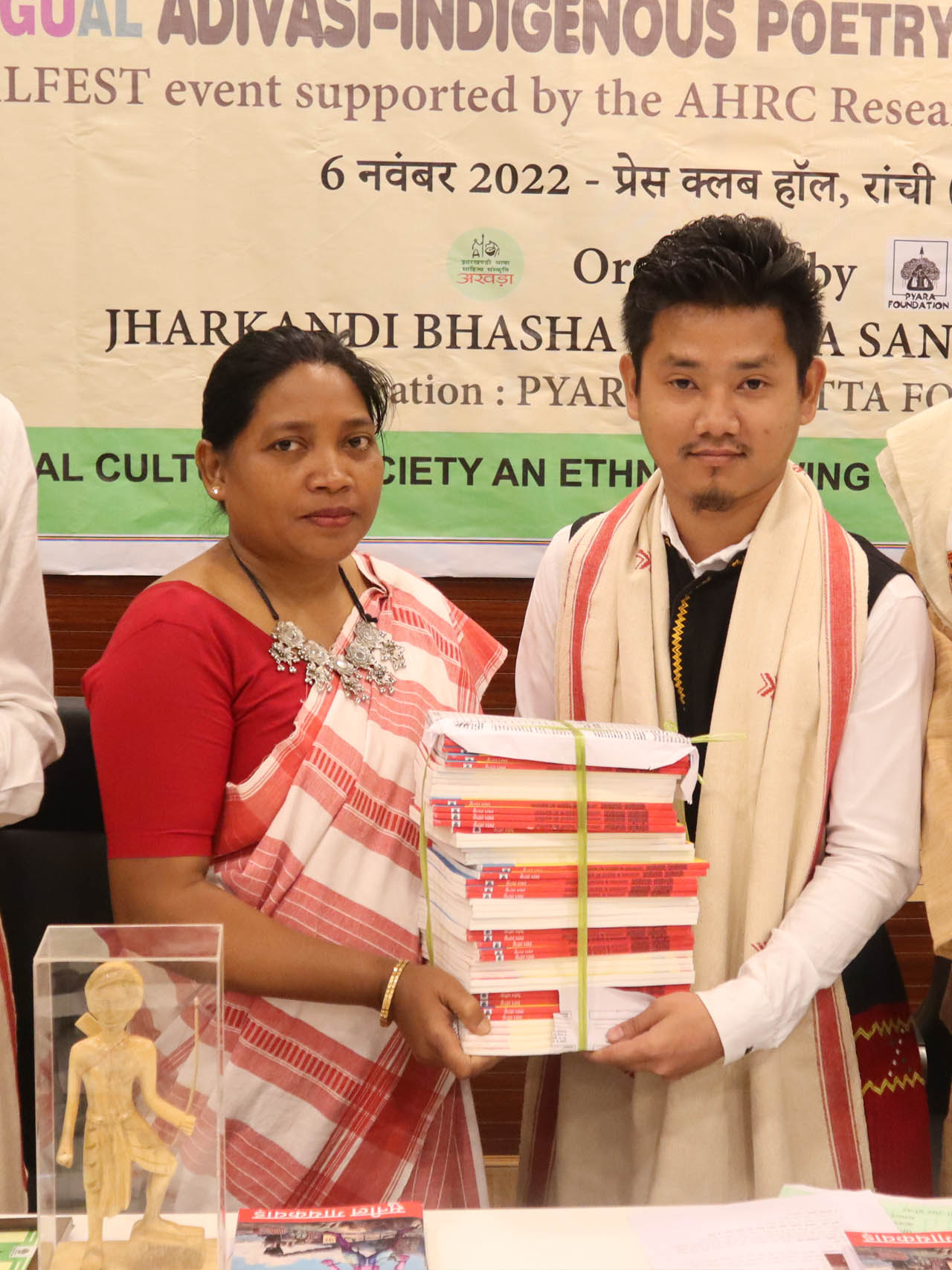
We’re - earthkeepers, creators of sustainability.
Over twenty years in the Adivasi literary world.
